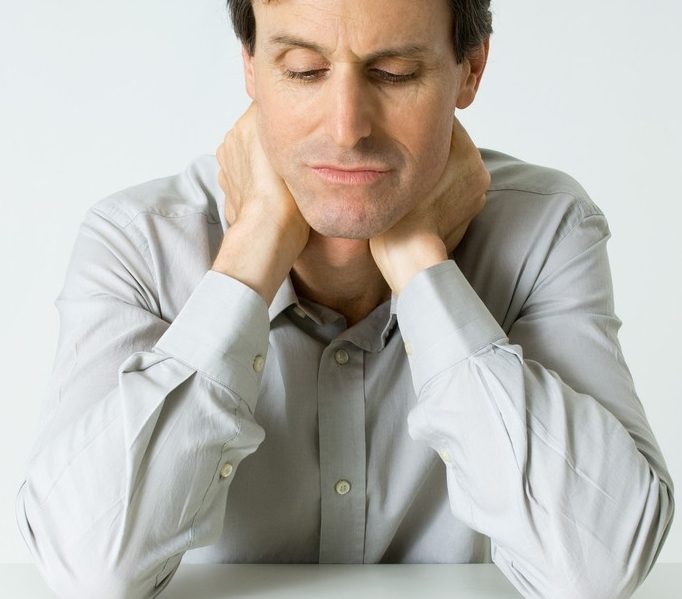Poor Sleep Blocks Depression Treatment

If you have treatment-resistant depression, talk to your doctor about testing for sleep apnea. Left untreated, apnea-caused poor sleep blocks depression treatment.
Depression (often called clinical depression and major depressive disorder) is far more than just feeling down temporarily or experiencing grief for a while after a serious loss. It’s a serious mood disorder that involves feeling profoundly sad most of the time.
Depression can wreck concentration, interfere with daily life, cause physical symptoms such as gastrointestinal problems and insomnia, and trigger thoughts of suicide, the National Institute of Mental Health points out.
The good news is depression is often highly treatable with medication and counseling. But what if you or someone you know is being treated for depression and isn’t getting better? It turns out a common, but potentially overlooked, condition ― obstructive sleep apnea ― could be the cause.
YOU MIGHT ALSO LIKE: Physical Symptoms of Depression
The connection between poor sleep and depression
About 17 million Americans suffer from depression each year, according to the Centers for Disease Control and Prevention. Many of those people likely have obstructive sleep apnea, although the problem may not be recognized or adequately treated. The result could be ongoing depression because poor sleep blocks depression treatment, according to research from the Medical College of Georgia at Augusta University.
Doctors have long known other undetected medical conditions ― including endocrine disorders (like hypothyroidism), coronary artery disease, and cancer ― can cause treatment-resistant depression. But they didn’t really notice a link between depression and sleep apnea, which occurs when a person’s upper airway becomes blocked repeatedly during sleep.
"No one is talking about evaluating for obstructive sleep apnea as a potential cause of treatment-resistant depression, which occurs in about 50 percent of patients with major depressive disorder," said W. Vaughn McCall, MD, chair of the department of psychiatry and health behavior at the Medical College of Georgia at Augusta University.
But that may change, thanks to the surprising results of a study by McCall and colleagues, published in The Journal of Psychiatric Research. Their research revealed poor sleep blocks depression treatment.
You may not know you have sleep apnea
McCall and his research team (which included investigators from the University of California, Irvine; the University of Wisconsin; Wake Forest School of Medicine; and the University of California, San Francisco) weren’t looking at sleep apnea’s relation to depression when they began their study.
Instead, their aim was to document whether treating insomnia in depressed patients, in addition to their depression, could reduce suicidal thoughts.
Patients who volunteered for the study were excluded if they were diagnosed with obstructive sleep apnea, were obese, or suffered from restless leg syndrome, factors that raise the risk of obstructive sleep apnea. People with those health conditions were eliminated from the research because the study used sleeping pills. Those drugs tend to relax already too relaxed throat muscles in a person with sleep apnea.
But when 125 volunteers with depression, insomnia, and suicidal thoughts were enrolled, sleep studies performed on the research subjects revealed something unexpected.
It turned out that 17 of the participants (14 percent) had undiagnosed obstructive sleep apnea. What’s more, six of the 17 individuals didn’t fit the profile of obstructive sleep apnea; they weren’t overweight and male, didn’t snore, and didn’t suffer from daytime sleepiness.
"We were completely caught by surprise that people did not fit the picture of what obstructive sleep apnea is supposed to look like," McCall explained.
Consider testing for sleep apnea for treatment-resistant depression
It was already known that obstructive sleep apnea raises the risk of depression. But the research revealed people who are depressed and not responding to therapy and medication may not be tested for the condition because they don’t fit the profile of people most likely to have the condition. That, according to McCall and his research team, needs to change.
The study suggests that guidelines for managing treatment-resistant depression should include testing for obstructive sleep apnea, usually diagnosed after a sleep study. It’s important because poor sleep blocks depression treatment in many people, and treating obstructive sleep apnea may improve symptoms of treatment-resistant depression, the investigators concluded.
Breathing devices, primarily continuous positive air pressure (CPAP) machines, as well as lifestyle changes (such as losing excess weight and stopping smoking) are common sleep apnea treatments, the National Heart Lung and Blood Institute points out.
"We know that if you have obstructive sleep apnea, you are not going to respond well to an antidepressant. We know that if you have sleep apnea and get CPAP, it gets better,” McCall emphasized. “And now we know that there are hidden cases of sleep apnea in people who are depressed and suicidal.”
Updated:
July 14, 2023
Reviewed By:
Janet O’Dell RN